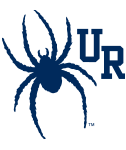When I came into college last August, the recurring piece of advice that I got from other pre-medical upperclassmen was to do research at the university. To be honest, I didn’t understand why at first. How was it relevant to the MD career I wanted to pursue? I don’t plan on working at the benchtop, so how could this help me on the bedside?
However, following their advice, I started doing research with the Pollock Lab last Spring semester, and I am currently here for ten weeks for the summer research period. I look at MEMO1, a protein implicated in breast tumor growth, and how it interacts with other proteins in the cells; the more we understand MEMO1’s functions and its interactions, the more it can become a potential target for breast cancer drug therapies. From the hours I have spent in the lab so far, I can already understand why so many pre-medical students advised me to do research. Not only is my project clinically relevant and has prepared me with hard skills for higher level biochemistry courses, but arguably even more valuable than that, I have gained soft skills that I can carry with me to be a better physician.
Detail-Oriented
In high school I was pretty headless in my approach to learning, which often led to careless mistakes on assignments and assessments. When I started research, I was forced to reflect on this weakness of mine that was hindering my progress. My project requires days of meticulous procedures to obtain usable data, so I learned that I would have to change my haphazard behavior if I didn’t want the time, effort, and resources expended in the lab going to waste. Since I will be accountable for human lives as a physician, it’s even more pertinent that I am detail-oriented. For example, I will need to pay careful attention in prescribing the correct dosage of medication, identifying subtle signs of illness, or using the appropriate tools in surgery.
Keeping Up to Date With Your Field
As a researcher, you are constantly learning about new breakthroughs with your project from reading other papers. It is important to keep an organized list of literature related to your project in a document, so that you can refer back to this list if you need to be reminded of the methodologies that were successful for other people, the medical relevance of your project, or the science behind the experiments you are performing. Similarly, the medical field is constantly advancing; things that you learn while you’re in medical school may drastically change twenty years out when you are a physician. In an evolving field such as medicine, being able to read and understand new literature in your specialty is an essential skill!
Resilience
When research is your nine to five, you learn that it takes patience, passion for academia, and a commitment to learning and growth to get through the hundreds of hours spent in a lab. If you have the goal to become a physician, you are in for a long-term investment during your four undergraduate years, four years of medical school, additional years of residency, and the years of eventual practice. The increasing moral crisis with physicians who become so burnt out by the physical and emotional stress that their job ensues, emphasizes the need for resilience. Therefore, developing perseverance early from the extensive research hours will be helpful in a career that can be, at times, mentally taxing.
Explaining What You Do to Non-Experts
Effectively communicating your research to someone who is not familiar with it in layman’s terms is a crucial skill in building the public’s confidence in experts. You may have discovered ground-breaking results, but if a non-expert doesn’t understand the purpose or significance of the research, your results may as well be rendered useless. This “language barrier” creates a huge issue, and is the reason why the science community, and medical community, faces distrust from the public; people don’t understand why certain research or treatments are important to them because it is not explained to them in vernacular that they can understand. I hope to continue developing the skill of translating scientific jargon into digestible information off-campus as well in casual conversation with friends and family.
Critical Thinking
Finally, one of the biggest skills research has forced me to develop is critical thinking. Over half of my experiments have gone wrong. Which, at times, is incredibly frustrating. However, these mistakes are even more valuable than if I had performed the experiments perfectly, because they require me to use logic and reasoning to identify problems and explore alternative methods. I am learning to troubleshoot, not being driven to produce only positive results, giving myself grace, and accepting failure. As I am pursuing a career as a physician, I will not be a stranger to failure. However, I know that I will carry these skills that I learned during research to take my mistakes and view them as growth opportunities.
When the medical field hinges on scientific advancements, you’ll quickly see that wet lab research and medicine are hugely intertwined. If you are a pre-medical prospective or undergraduate student debating on whether or not you want to pursue research in college, do it. Take my advice. Hopefully, after reading this blog post, you won’t be going into it as blindly as I was 😉
Lauren Shin
Class of 2027
Biochemistry & Molecular Biology Major
References:
Newkirk, M. L., Rubenstein K. J., Kim, J.Y., Labrecque, C.L., Airas, J., Taylor, C.A., Evans, H.D., McKoy, Q., Parish, C.A., and Pollock J.A. (2018) Analysis of MEMO1 Binding Specificity for ErbB2 Using Fluorescence Polarization and Molecular Dynamics Simulations, Biochemistry 2018 57, 5169-5181.
The premed competencies for entering medical students. Students & Residents. (n.d.). https://students-residents.aamc.org/real-stories-demonstrating-premed-competencies/premed-competencies-entering-medical-students

Recent Comments